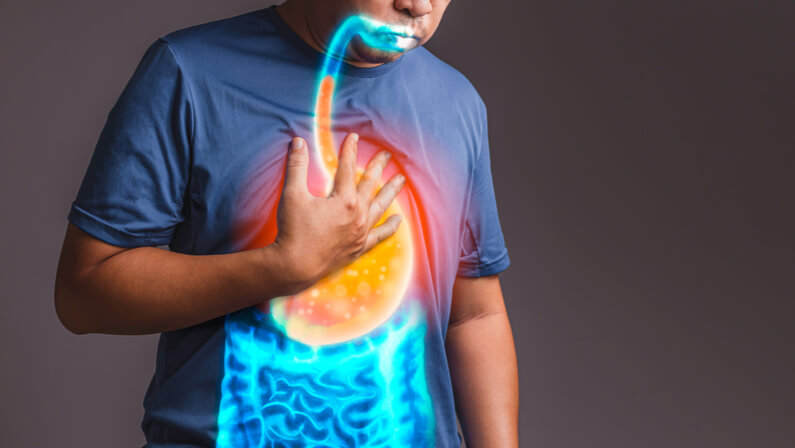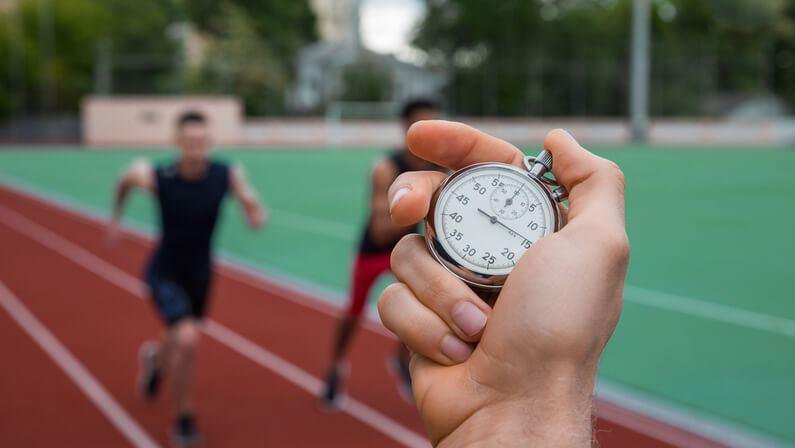Does Your Stomach Hurt After Running?. Running is all fun and healthy—until you experience a running stomach. It is painful and has no cure.
The good thing is that you can prevent it if you know what causes it.
This article will spill the answers to your burning question: why does my stomach hurt after running?
What is a running stomach?
Running stomach, sometimes known as runner’s belly, is a distressing feeling in the gut linked to running.
A study reveals that a runner’s belly is common among distance runners and endurance sports athletes. About 30 to 90 percent of runners experience lower abdominal pain when running and training.
What causes stomach pain after running?


Running stomach involves the digestive system. As mentioned, long periods of running affect the blood flow.
Too much agitation and jostling cause the blood flow that should go to your digestive system to divert to your cardiovascular system.
The disruption irritates the digestive process resulting in an urge to go to the bathroom to expel whatever is in your digestive system.
Several factors contribute to stomach pain during and after running.
Dehydration
Since your body works in full motion during long periods of running, it needs to replenish energy through water—lack of hydration results in cramps, bloating, and nausea.
Eating at the Wrong Time
Eating right before running may cause vomiting and stomach ache due to undigested food inside the stomach. The recommended time to eat is two hours before the run.
Eating the Wrong Pre-Run Snack
A pre-run snack is essential to warm up the body. However, consuming the wrong type of pre-run snack may do more harm than good to your body.
High-fat and high-protein snacks take time to digest, leaving them completely solid in your stomach as you run.
Excessive caffeine and concentrated drinks
While caffeine makes one amp up before a long run, people with sensitive stomachs may not be able to bear too much acidity. Extreme caffeine before an exercise can trigger acid reflux and can lead to painful cramps.
Highly concentrated drinks such as fruit juices and alcohol can also irritate the stomach.
Stress
As with anybody, stress can affect your body and your overall performance as a runner. Stress can also slow down the function of the digestive system.
Symptoms such as bloating, stomach upset, cramping, and slow metabolism may begin to manifest while you are in training.
What are the symptoms of running stomach?
The indications of a running stomach may occur during your workout and hours after. Abdominal pain should not last more than 24 hours.
Know the symptoms of a running stomach before it ultimately slows down your pace.
- Abdominal cramping
- Acid reflux
- Vomiting
- Diarrhea
If you experience these symptoms and can’t bear them, go to RapidCare ER for immediate diagnosis and treatment. They provide smooth and stress-free medical care 24/7 in their La Porte and Katy, Texas locations.
How to treat running stomach?
There is no prescribed medication on how to treat a running stomach. Preventing this abdominal pain boils down to preparation before your long-distance run.
Look into these factors and see how to prevent a running stomach with healthy lifestyle changes.
Diet


Start with your diet. Pre-meals should include food high in carbs and moderate in protein.
Avoid food with nutrients like fat and fiber, which slow down digestion. Too many sweeteners can also affect your digestive system.
When it comes to beverages, avoid highly-concentrated drinks and alcohol that contain high levels of carbohydrates.
The timing of eating also plays a vital role in preventing lower stomach pain after running. Choose to eat at least two hours before your run.
Hydration
Proper hydration is essential before and after running. It would help if you also optimized hydration 24 hours before the run to warm up your whole body completely.
Drink electrolyte-infused beverages before and during long bouts of exercise.
However, hydration may also be a tricky factor. Be careful not to drink too much water because it may lead to digestive irritation and cramps.
Probiotics


Regular bowel movement decreases tendencies of digestive distress. Consider taking probiotics to improve your gut’s health.
A study reveals that probiotic intake enhances a runner’s digestion. Probiotics can also decrease gastrointestinal symptoms during a marathon.
Practice
Follow a routine training that your body can get used to. Practice makes running stomach less of a problem.
You can also try running in different parts of the day and see what time best suits your body.
If you usually experience stomach cramps and nausea during extreme heat, you can try running early or in the afternoon.
Running apparel


Check how your clothing affects your body’s blood flow. There are running apparels that may be too tight around the midsection, which compresses the digestive tract, making you uncomfortable.
What to do with lower abdominal pain when running
Even when you have prepared so hard for your long-distance race, you still might experience lower abdominal pain when running.
Follow these steps in case you feel a sudden stomach discomfort during midrace.
- Slow down. Instead of running double time to finish the run, take some time to slow down. A slower pace will help the blood flow redirect to your digestive system. It allows your stomach to ease from discomfort.
- Sip cold water. Grab some cold water and take a sip to fuel hydration. Cold water lowers your body’s temperature and helps ease your stomach pain.
- Eat. If your stomach has been empty for hours and you feel nauseated, eat a couple of plain crackers to ease your hunger.
- Burp. If you feel the urge to burp or release gas from your body, do it to ease your stomach cramps.
- Go to the bathroom. Once you feel the urge to poop, slow down and stop instead of forcing yourself to finish the race. The continuous jostling will keep diarrhea from getting worse.
- Seek emergency medical care. If the cramps still don’t go away, you can call for emergency medical help.
RapidCare ER brings you immediate medical diagnosis and treatment with minimal wait times. They provide emergency care services for running stomach symptoms like nausea, abdominal pain, and vomiting minutes after entering the emergency room.
Consult a health professional
If you continue to experience a consistent running stomach even after taking preventive measures, it might be time to consult a doctor. You might be having a more serious digestive problem beyond a runner’s belly.
Seek immediate medical treatment if you have other severe symptoms such as:
- Long periods of diarrhea
- Severe heart palpitations
- Loss of consciousness
- Sudden acute headache
- Bloody or black stool
Irritable bowel syndrome (IBS) and celiac disease have similar symptoms to runner’s belly, so it is best to consult a doctor for confirmation.
Contact RapidCare ER for a timely and accurate diagnosis of emergency medical problems and ailments without spending so much time in the waiting line.
Their board-certified physicians and healthcare professionals provide excellent medical services and customer care. Visit their locations in La Porte and Katy, Texas, to consult.